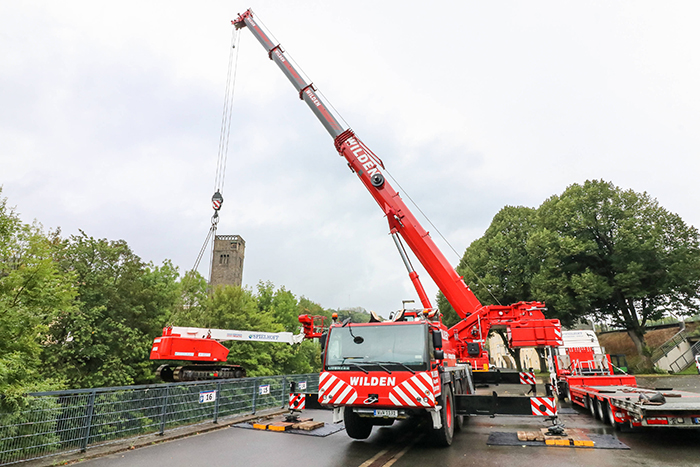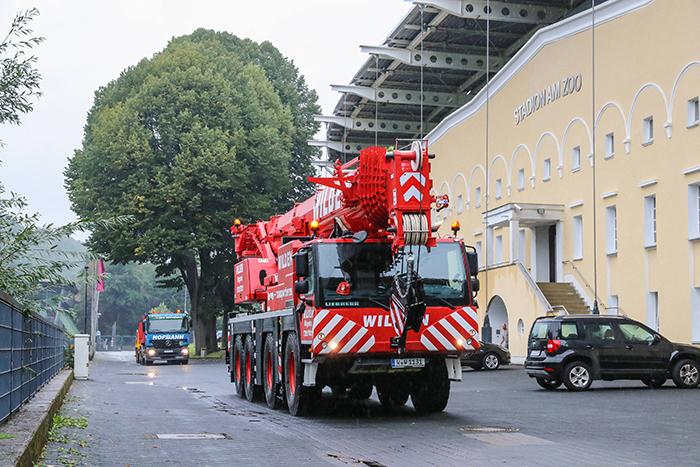Set up with 22.5 tonnes of ballast, the Liebherr LTM 1090-4.2 mobile crane hoisted the 12.8 tonne work platform out of the water with a radius of 15 metres and placed it on a low loader.

These jobs are now fairly routine to us as we do them between 15 and 20 times a year. However, they do require extensive preparation as all work, including our crane operations, around the Wuppertaler suspension railway route requires a permit. The personnel working there must first register with the relevant department at the suspension railway and receive safety training,
says Dominik Fandrey, Dispatcher and Operations Manager at Wilden.

The crane job itself only took 2.5 hours. It took place in the suburb of Sonnborn on the site of the “Stadion am Zoo”, which is almost one hundred years old and in its day was one of the largest and most modern stadia in West Germany. It is here that the suspension railway diverts from the route of the River Wupper.
The work platforms can easily be moved towards the bridge structures on their crawler gear as the water is only around half a metre deep, enabling the construction engineers to complete the inspections. Of course, it is not possible in heavy rain or flooding,
explains Fandrey. 2/4 “Auto Wilden” was founded by Herrmann Wilden in 1935 as a towing and transport contractor. Since 1 October 2008, the company, which by then was known as Wilden KranVermietung GmbH, has been part of the Bracht Group and continues to trade as a family-run business as intended by the founder. In addition to crane rental, the company also specialises in transport services.
 Copyright 2020 All rights reserved.
Copyright 2020 All rights reserved.